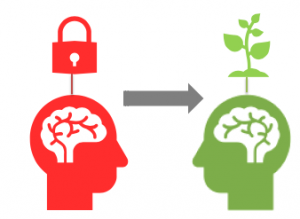Preceptor Pearl
Tips to Promote Growth Mindset for Learning
Charlene Williams, PharmD, BCPC, CDE
Learners’ beliefs about intelligence can affect learning. Individuals with growth mindsets believe that intelligence and abilities are adaptable while those with fixed mindsets believe that these characteristics generally cannot change.1,2 Research has shown that growth mindset positively affects learner motivation, academic performance, engagement, and willingness to attempt new challenges.3 Developing a growth mindset can help one deal with failures and setbacks and process errors effectively.2
People may exhibit qualities of both mindsets as they can shift over time depending on the situation or vary based on which trait is considered. This suggests preceptors have opportunities to help learners transition to growth mindsets. Determining a learner’s motivations for learning, designing educational activities that have intrinsic value to learners, and providing autonomy and choice may be helpful to promote learning.3
Table 1: Comparison of Growth vs Fixed Mindset
[table “” not found /]Table 2: Ten tips to develop growth mindset
(Adapted from JH Cooley et al2)
[table “” not found /]References:
- Dweck CS, Self-theories, their role in motivation, personality, and development. Philadelphia, PA; Psychology Press; 2000.
- Cooley JH, Larson S. Promoting a growth mindset in pharmacy educators and students. Curr Pharm Teach Learn 2018; 19:675-679.
- Ng B. The neuroscience of growth mindset and intrinsic motivation. Brain Sci 2018; 8(2):20.
- Klein J, Delany C, Fischer MD, Smallwood D, Trumble S. A growth mindset approach to preparing trainees for medical error. BMJ Qual Saf 2017; 26:771-774.
- Mindset Works. Mindset assessments. http://www.mindsetworks.com/assess/. Accessed September 19th, 2018.
- Weitzel KW, Walters EA, Taylor J. Teaching clinical problem solving: a preceptor’s guide. Am J Health-Syst Pharm 2012; 69:1588-99.
